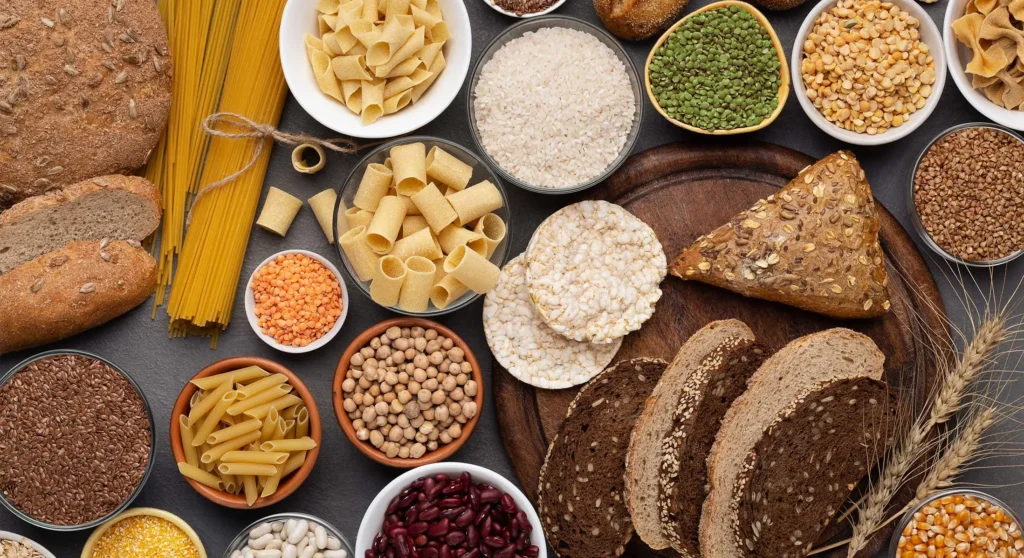What exactly is gluten? It is a family of proteins found in wheat, barley, rye, and malt, responsible for giving elasticity and the characteristic texture to bread dough. In recent years, the Gluten-Free Diet has shifted from a medical necessity to a major health trend.
It is crucial to clarify: not everyone needs to avoid gluten. This diet is vital and mandatory for people with Celiac Disease (a severe autoimmune condition) and for those with Non-Celiac Gluten Sensitivity. However, many people adopt it hoping to lose weight or simply feel better. The biggest myth here is that “gluten-free” automatically means “healthy”—which is not true.
If you are considering this change, it is essential to understand what to avoid, what to eat, and, above all, how to maintain complete nutrition.
Risks and Common Mistakes in the Gluten-Free Diet
Many beginners make the mistake of only substituting gluten-containing products with their industrial “gluten-free” versions (breads, cakes, snacks). However, eliminating gluten without proper information can lead to nutritional deficiencies and even weight gain.

1. Risk of Nutritional Deficiencies
Wheat products are often fortified with B vitamins (such as folic acid), iron, and other minerals. By eliminating them, the diet can become deficient in:
- Fiber: Essential for digestive health.
- Iron and Zinc: Important for energy and immunity.
- B Vitamins: Necessary for metabolism and energy production.
READ ALSO:
Follow our PAGE
2. The Risk of Weight Gain
Many industrial “gluten-free” products compensate for the lack of gluten’s texture and flavor by adding more sugars, fats, and calories. Transitioning to this diet and relying on processed snacks can, ironically, lead to weight gain.
3. The Problem of Cross-Contamination
For celiacs, cross-contamination is a serious concern. Trace amounts of gluten can cause damage. It is essential to use separate utensils, cutting boards, and toasters, especially in shared kitchens.
Practical Guide: What to Eat and What to Avoid
The key to a healthy Gluten-Free Diet is to focus on foods that are naturally gluten-free, rather than processed substitutes.
Strictly Forbidden Foods (Contain Gluten)
- Wheat and its Derivatives: Wheat flour, bread, pasta, crackers, cakes, couscous, seitan (gluten protein).
- Other Grains: Barley (very common in beers and malt), Rye, and Triticale (a wheat-rye hybrid).
- Hidden Ingredients: Soy sauce (unless it is Tamari or labeled gluten-free), non-labeled gluten-free beer, some industrial broths, and marinades.
Allowed and Priority Foods (Naturally Gluten-Free)
- Meat, Fish, and Eggs: All types, as long as they are not breaded or processed.
- Fruits and Vegetables: All varieties of fresh fruits and vegetables.
- Dairy: Milk, plain yogurt, and simple cheeses, provided they do not have cereal-based additives.
- Safe Grains: Rice, corn, potato, tapioca, amaranth, teff, and Quinoa.
- Oats: Only if labeled as “gluten-free” and certified to prevent cross-contamination.
Essential Tips for Success on the Diet
Transitioning to a gluten-free lifestyle requires planning, but with these tips, it becomes much easier:
1. Read All Labels
Learn to look for ingredients like wheat flour, malt, modified starch, or mentions of hydrolyzed vegetable protein. The designation “Gluten-Free” or “GF” is your best friend.
2. Increase Natural Fiber Intake
Since many wheat-based breads and cereals are eliminated, compensate for the fiber loss with plenty of legumes (beans, lentils, chickpeas), fruits, vegetables, and grains like quinoa and brown rice.
3. Simplify Your Menu and Save Money
Industrial gluten-free products are more expensive. Focus your diet on single, fresh ingredients (meat, fish, vegetables, eggs, fruits). This is healthier, cheaper, and eliminates the need to check complex labels.
4. Prepare for Eating Out
Eating at restaurants and social gatherings can be challenging. Call the restaurant ahead of time or bring snacks with you to meetings. Preparation is key to avoiding frustration and potential gluten exposure.
Conclusion
The Gluten-Free Diet is a powerful tool and, for some, a necessity for life. If you have diagnosed Celiac Disease or sensitivity, following it strictly is crucial for overall digestive health and well-being. However, if your goal is simply healthier eating, remember that the focus should be on whole, fresh foods, regardless of gluten. Avoid falling into the trap of industrial “gluten-free” products that can sabotage your health goals. To ensure you are getting all essential nutrients and balancing your diet, consulting a nutritionist is always the best decision.

Hello! My name is Alan Teixeira and I am passionate about helping people live healthier, more balanced lives. From mindful eating to daily habits that promote physical and mental well-being, I believe that small, consistent changes can lead to powerful transformations.
I created this blog to share practical tips, reliable information, and thoughtful insights that can inspire you to take better care of yourself—with balance, mindfulness, and positivity.
If you are looking to improve your health, nourish your body, and build a lighter, more fulfilling routine, you are in the right place. Welcome!
